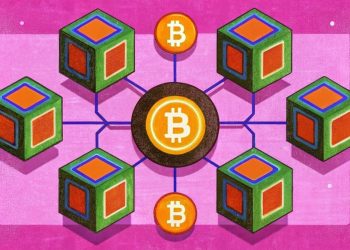
Community Investment Initiatives Are Empowering a New Generation of Global Investors
Cryptocurrency has long been heralded as a disruptive force in the financial world, but in 2025, its impact is increasingly being measured not just by market capitalization or technological innovation, but by its ability to democratize access to financial tools and knowledge. Across continents, crypto’s unique blend of transparency, accessibility, and decentralization is fueling a surge in financial literacy and community investment initiatives, empowering individuals and communities to take charge of their economic destinies.
The Promise of Democratized Finance
Traditional finance has often been exclusive, requiring access to banks, brokers, and credit histories—barriers that have left billions globally underserved or unbanked. Cryptocurrency, by contrast, operates on open, decentralized networks that anyone with an internet connection can join. This foundational difference is more than technological; it’s philosophical, aiming to level the playing field and give everyone a stake in the digital economy.
Blockchain’s transparency means every transaction is recorded on a public ledger, making it easier to track funds and reduce corruption. The borderless nature of crypto allows for instant, low-cost transfers, opening up new possibilities for remittances, microloans, and cross-border commerce. But perhaps most importantly, crypto’s rise is sparking a global movement to improve financial literacy and foster collective investment.
Financial Literacy: The Key to Unlocking Crypto’s Potential
While the accessibility of crypto is a game-changer, it also comes with risks—volatility, scams, and technical complexity can be daunting for newcomers. Recognizing this, a wave of educational efforts has emerged, aiming to equip people with the knowledge and confidence to participate safely and effectively in the crypto economy.
Grassroots Education Initiatives
Around the world, nonprofits, DAOs, and community groups are leading the charge in crypto education. In Africa, organizations like the Blockchain Education Network and Binance Academy are running workshops and online courses that teach everything from wallet security to smart contract basics. In Latin America, crypto meetups and hackathons are bringing together students, entrepreneurs, and developers to learn and collaborate.
Online Learning Platforms
The digital nature of crypto makes it a natural fit for online learning. Platforms like Coursera, Udemy, and Khan Academy now offer blockchain and crypto courses, while YouTube channels and podcasts demystify complex topics for a global audience. Many of these resources are free or low-cost, removing financial barriers to education.
Gamified Learning and Incentives
Some projects are using gamification to make learning about crypto fun and rewarding. Apps like Rabbithole and Coinbase Earn allow users to complete educational tasks and earn small amounts of cryptocurrency, turning learning into a hands-on experience. This approach not only boosts engagement but also provides real-world incentives for users to deepen their understanding.
Community Investment: Building Wealth Together
Crypto’s democratizing ethos extends beyond education to new models of collective investment. Decentralized Autonomous Organizations (DAOs), tokenized crowdfunding, and digital investment clubs are making it easier for communities to pool resources, make decisions collaboratively, and share in the rewards.
DAOs: Collective Decision-Making on the Blockchain
DAOs are blockchain-based organizations governed by smart contracts and community voting. Members can propose initiatives, vote on investments, and allocate resources transparently. This model is being used to fund everything from local businesses to global climate projects, giving ordinary people a direct say in how capital is deployed.
Tokenized Crowdfunding and Micro-Investment
Platforms like Mirror, Gitcoin, and Juicebox are enabling creators, startups, and nonprofits to raise funds from a global audience. Contributors receive tokens or NFTs that represent their stake or support, fostering a sense of ownership and community. These platforms are breaking down barriers to entry, allowing anyone with a compelling idea to access capital and build a following.
Digital Investment Clubs
Blockchain technology is powering a new generation of investment clubs, where members pool funds to invest in real estate, art, or crypto assets. Smart contracts automate profit distribution and record-keeping, reducing administrative overhead and ensuring transparency. These clubs are especially popular among younger investors and those in emerging markets, who may lack access to traditional investment vehicles.
Real-World Impact: Stories of Empowerment
The impact of crypto-driven financial literacy and community investment is being felt around the globe:
- Nigeria: The Blockchain Education Network has trained thousands of students, helping many land remote jobs in the global crypto industry. These opportunities are life-changing in regions where traditional employment is scarce.
- Brazil: The DAO-based cooperative ColaborAmerica is funding sustainability projects, with community members voting on which initiatives to support. This model is fostering local entrepreneurship and environmental stewardship.
- United States: Initiatives like Black Bitcoin Billionaire and Crypto Kids Camp are bringing digital asset education to underrepresented minorities and youth, addressing the racial wealth gap and inspiring the next generation of investors.
Technology as an Enabler
Advances in blockchain and Web3 technology are making it easier for individuals to access financial education and participate in investment opportunities. User-friendly wallets, mobile apps, and decentralized exchanges have lowered technical barriers, while AI-powered chatbots and virtual assistants provide personalized guidance to new users.
Mobile Accessibility
With smartphone penetration rising globally, mobile-first crypto platforms are reaching users in even the most remote areas. Apps like Trust Wallet and MetaMask offer intuitive interfaces, making it easy for anyone to buy, sell, and manage digital assets.
Language and Localization
Projects are increasingly offering content in multiple languages, recognizing that true democratization means meeting people where they are. Localized educational materials and support are helping to bridge cultural and linguistic gaps.
Institutional and Government Support
Major crypto exchanges, foundations, and even governments are recognizing the importance of financial inclusion and are investing in education and community initiatives:
- Exchanges: Coinbase, Binance, and Kraken have launched learning hubs, webinars, and certification programs for users at all experience levels.
- Foundations: The Ethereum Foundation and Solana Foundation are funding grants for educational content creators and nonprofit organizations.
- Universities: Partnerships between crypto companies and academic institutions are bringing blockchain curricula to classrooms worldwide.
Governments and NGOs are also exploring blockchain for social impact, from transparent aid distribution to microloans and digital identity solutions.
Challenges and the Path Forward
Despite the progress, challenges remain. The rapid pace of innovation can make educational content quickly outdated. Regulatory uncertainty and the risk of scams highlight the need for reliable, unbiased information. Internet access and language barriers still limit participation in some regions.
Addressing these challenges will require collaboration across the crypto ecosystem. Open-source resources, community-driven standards, and a commitment to transparency and user safety are essential for building trust and ensuring that the benefits of crypto are shared equitably.
A New Era of Financial Empowerment
Crypto’s democratizing power is reshaping the financial landscape, making it more inclusive, transparent, and community-driven. By fostering financial literacy and enabling collective investment, blockchain technology is empowering individuals and communities to take control of their economic destinies.
The ripple effects are already being felt—increased entrepreneurship, job creation, and resilience in the face of economic shocks. As the crypto ecosystem continues to evolve, its commitment to education and inclusion will be critical in shaping a more equitable and prosperous future.
For millions around the world, the journey toward financial empowerment is just beginning. With crypto as both a tool and a movement, the promise of democratized finance is becoming a reality, one community at a time.

















